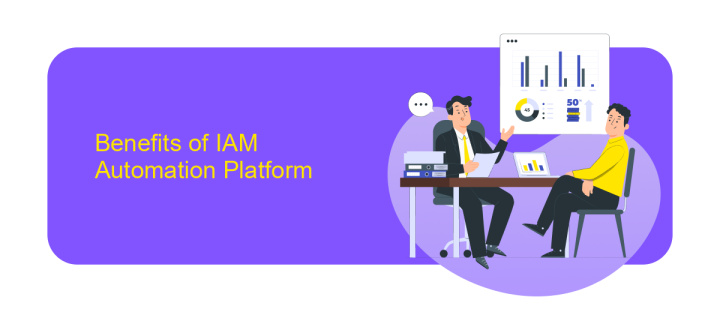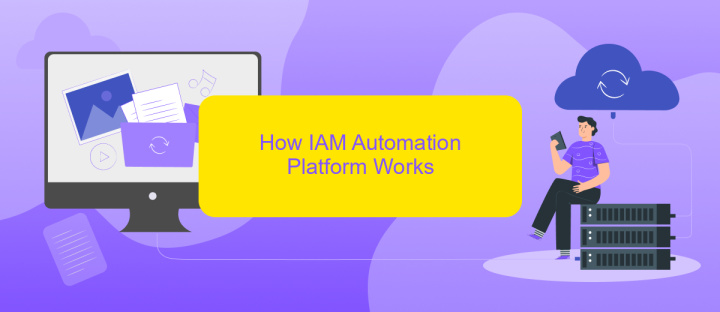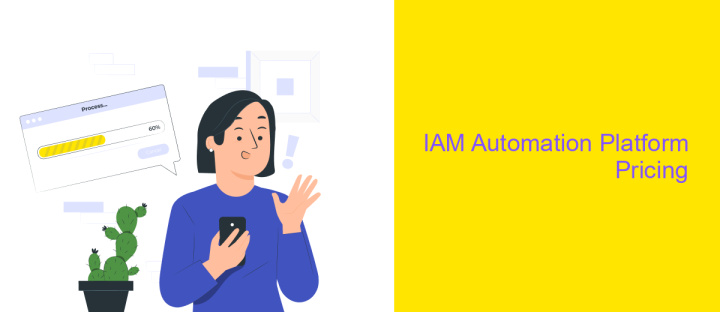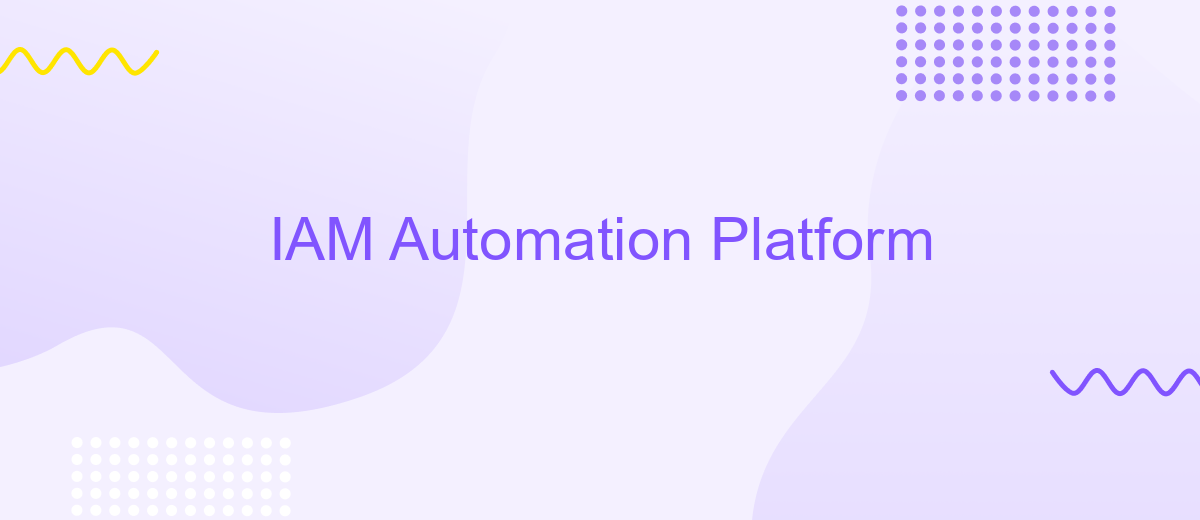IAM Automation Platform
In today's rapidly evolving digital landscape, managing identities and access efficiently is crucial for organizations of all sizes. An IAM (Identity and Access Management) Automation Platform streamlines these processes by automating user provisioning, authentication, and authorization tasks. By leveraging advanced technologies, it enhances security, reduces administrative overhead, and ensures compliance, allowing businesses to focus on growth and innovation while safeguarding their digital assets.
Introduction
In today's rapidly evolving digital landscape, the need for robust identity and access management (IAM) solutions has never been more critical. As organizations expand and embrace digital transformation, managing identities and ensuring secure access to resources becomes increasingly complex. IAM automation platforms offer a comprehensive solution to streamline identity management processes, enhance security, and improve operational efficiency. These platforms empower businesses to automate repetitive tasks, reduce human error, and maintain compliance with regulatory standards.
- Automates user provisioning and deprovisioning processes.
- Enhances security by enforcing consistent access policies.
- Facilitates seamless integration with existing IT infrastructure.
- Reduces administrative overhead and operational costs.
- Ensures compliance with industry regulations and standards.
By leveraging IAM automation platforms, organizations can effectively manage user identities, control access to critical resources, and mitigate security risks. These platforms not only provide a scalable and flexible approach to identity management but also enable businesses to focus on strategic initiatives rather than routine administrative tasks. As a result, companies can achieve a higher level of security, efficiency, and agility in their operations, ultimately driving business growth and innovation.
Benefits of IAM Automation Platform

The IAM Automation Platform offers significant benefits by streamlining identity and access management processes. By automating user provisioning and deprovisioning, organizations can reduce manual errors and ensure that access rights are consistently applied. This not only enhances security but also accelerates onboarding and offboarding processes, allowing employees to be productive from day one. Additionally, automation helps in maintaining compliance with regulatory requirements by providing accurate audit trails and reporting capabilities.
Integrating IAM solutions with other enterprise systems is crucial for seamless operations. Platforms like ApiX-Drive facilitate these integrations by offering a user-friendly interface to connect various applications without the need for extensive coding. This enables organizations to synchronize data across systems, ensuring that user information is up-to-date and reducing administrative overhead. Furthermore, the IAM Automation Platform's scalability allows businesses to adapt to changing needs, supporting growth while maintaining robust security measures. Overall, the platform empowers organizations to enhance operational efficiency, improve security posture, and achieve compliance with ease.
How IAM Automation Platform Works

The IAM Automation Platform streamlines identity and access management by automating routine tasks and enhancing security protocols. It integrates seamlessly with existing IT infrastructure, offering a centralized approach to managing user identities and permissions. By leveraging advanced technologies, the platform ensures efficient handling of user lifecycle management, access requests, and compliance reporting.
- User Provisioning: Automates the creation, updating, and deletion of user accounts across multiple systems, reducing manual intervention and errors.
- Access Management: Implements role-based access controls to ensure users have the appropriate permissions based on their roles and responsibilities.
- Compliance and Reporting: Generates detailed reports to demonstrate compliance with regulatory standards, helping organizations avoid potential penalties.
- Self-Service Portals: Empowers users to manage their access requests and password resets, reducing the burden on IT support teams.
By automating these processes, the IAM Automation Platform not only enhances operational efficiency but also strengthens security measures. It reduces the risk of unauthorized access and data breaches, while also ensuring that organizations remain compliant with industry regulations. This comprehensive solution is crucial for modern enterprises aiming to maintain robust identity and access management frameworks.
IAM Automation Platform Pricing

When considering an IAM Automation Platform, understanding the pricing structure is crucial for effective budgeting and planning. These platforms often offer a variety of pricing models to accommodate different organizational needs and scales. Whether you're a small business or a large enterprise, there are options tailored to fit your specific requirements.
Typically, the pricing is influenced by factors such as the number of users, the level of automation required, and the complexity of the integration with existing systems. Additionally, some platforms may offer tiered pricing plans that provide flexibility and scalability as your organization grows.
- Per-user pricing: Charged based on the number of active users.
- Subscription-based pricing: Monthly or annual payments for access to the platform.
- Feature-based pricing: Costs vary depending on the features and tools selected.
- Custom pricing: Tailored solutions for specific enterprise needs.
It's important to evaluate the total cost of ownership, including potential hidden fees such as setup charges, maintenance, and support. By carefully comparing different pricing models, organizations can choose a solution that not only fits their budget but also aligns with their strategic goals and operational demands.
- Automate the work of an online store or landing
- Empower through integration
- Don't spend money on programmers and integrators
- Save time by automating routine tasks
IAM Automation Platform Use Cases
IAM Automation Platforms are essential in streamlining identity and access management processes across organizations. One critical use case is user lifecycle management, where the platform automates onboarding, role assignment, and offboarding of employees. By integrating with HR systems, it ensures that user accounts and permissions are promptly updated as employees join, change roles, or leave the company. This automation minimizes human error, enhances security, and improves operational efficiency by ensuring that only authorized individuals have access to necessary resources at all times.
Another significant use case is access request and approval workflows, where IAM Automation Platforms facilitate seamless integration with various applications and services. For instance, leveraging tools like ApiX-Drive, organizations can automate the synchronization of access rights across multiple systems. This integration capability allows for real-time updates and ensures compliance with organizational policies and regulations. By automating these processes, companies can significantly reduce manual intervention, speed up access provisioning, and maintain a comprehensive audit trail for compliance and reporting purposes.
FAQ
What is an IAM Automation Platform and why is it important?
How can an IAM Automation Platform improve security?
What are the key features to look for in an IAM Automation Platform?
How does integration work with existing systems in an IAM Automation Platform?
What are the benefits of automating IAM processes?
Do you want to achieve your goals in business, career and life faster and better? Do it with ApiX-Drive – a tool that will remove a significant part of the routine from workflows and free up additional time to achieve your goals. Test the capabilities of Apix-Drive for free – see for yourself the effectiveness of the tool.


